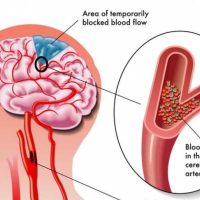
The global dietary supplements market combined, that is to say, vitamins, minerals, amino acids, herbs and other botanical ingredients, is expected to exceed $130 billion dollars in 2016with the vitamin segment on its own a major contributor to the steady revenue stream the past several decades. But are we really not getting the vitamins we should be eating right?
The discovery of how vitamins work to keep us healthy was a major scientific achievement in fighting the diseases of yesteryear when it was difficult or impossible for most people to get a wide variety of fresh fruits and vegetables year-round.
In 1912, the Polish biochemist, Casimir Funk originally coined the term “vitamine”(from Latin vita, ‘life’, and amine, because vitamins were originally thought to contain an amino acid).
Leading institutes of the time began isolating their benefits (each was assigned a letter A through Edue to their chronological discovery)through the contributions of epidemiologists, physicians, physiologists, and chemists. Research on vitamins relating to deficiency syndromes began showing four nutritional factors were essential for health in fact for life: proteins, carbohydrates, fats, and minerals;and each generation since then has been living longer and healthier lives.
Fast forward to the health and fitness craze of the 80s to present when nutrition industry marketers have discovered not new science but new channels to convince us that the 13 vitamins we need (A, C, D, E, K, and then 8 B vitamins) come in pill form and are worth swallowing for better health.
But wait: According to journalist Catherine Price in her persuasive new book Vitamania: Our Obsessive Quest for Nutritional Perfection,there is gap in knowledge and we are being duped, allowing an expensive and potentially dangerous delusion to take hold.“The vitamin and supplements industry, which is immensely profitable, relies on the intuition that if a little bit of something is good for you, a bit more can’t hurt. Right?Wrong,” said Price. “If you don’t have a serious vitamin deficiency, taking supplemental vitamins doesn’t provide any benefit, in almost all cases that have been studied. What’s even more surprising is this: routinely taking mega-doses of vitamins might actually harm you.
Price is not alone in her findings. The top five vitamins you should NOT take according to Steven Salzberg, Bloomberg Distinguished Professor of Biomedical Engineering, Computer Science, and Biostatistics at Johns Hopkins University:
- Vitamin C: Perhaps the most popular single vitamin supplement, vitamin C occurs in plentiful amounts in many fresh fruits and vegetables. Long before Casimir Funk In the early days of global exploration, sailors often died from scurvy, caused by the lack of vitamin C. That was a long time ago and even today vitamin C doesn’t prevent or cure colds. This question has been studied exhaustively covering 50 years worth of research. Vitamin C in pill form is generally safe, however megadoses of 2,000 mg or more can cause kidney stones.
- Vitamin A and beta-carotene: Vitamins A, C, and E are all anti-oxidants, which have been promoted for their supposed anti-cancer properties. The evidence doesn’t support this: for example, in a large study supported by National Cancer Institute smokers who took vitamin A were more likely to get lung cancer than those who didn’t.Vitamin A plays an important role in vision, but too much vitamin A can be toxic.
- Vitamin E: Long touted as an anti-cancer agent is a popular supplement. A study of 35,533 men, looked at vitamin E and the risk of prostate cancer. The authors found that the risk of cancer actually increased for men taking vitamin E. In an even larger review done at Johns Hopkins University, Edgar Miller and Lawrence Appel found that the overall risk of death was higher in people who took vitamin E.
- Vitamin B6: The B vitamins, including B6 and B12, are present in many foods, and deficiencies are rare. But taking B6 supplements for a long time can be harmful, asthe National Institutes of Health website explains:“People almost never get too much vitamin B6 from food. But taking high levels of vitamin B6 from supplements for a year or longer can cause severe nerve damage, leading people to lose control of their bodily movements.”
- Multi-vitamins: This is the big one. With masses in new markets like Indonesia now taking a conveniently packaged “multi” (nearly 40% of Americans take a multi-vitamin), they must be good for you, right? But a huge study found that the overall risk of death increased with long-term use of multivitamins, vitamin B6, folic acid, iron, magnesium, zinc, and copper. “Death,” according to Salzberg, “is a pretty bad outcome.”
Source: The Guardian; Forbes, Nutrient Ingredients USA; US National Library of Medicine National Institutes of Health; NYmag; Future market insights











